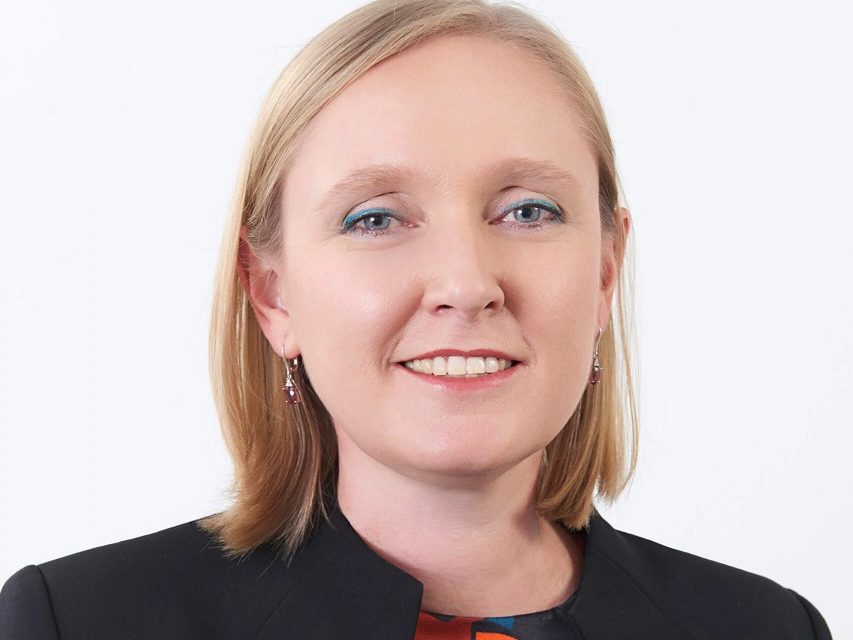
Dr Darian McBain
Chief Sustainability Officer
Monetary Authority of Singapore
Dr. Darian McBain is the Chief Sustainability Officer for the Monetary Authority of Singapore. Dr McBain has more than 20 years of deep experience in sustainability roles spanning across various sectors. Prior to this was most recently Global Director of Corporate Affairs and Sustainability in Thai Union Group, a leading global seafood supplier conglomerate. Dr McBain holds a PhD in social indicators for global supply chain analysis, MSc in Business Strategy, Politics and Environment, and a Bachelor of Engineering (Environmental). She was recently named as a United Nations SDG Pioneer for a Sustainable Ocean Economy.
Her previous work includes serving as the Sustainable Procurement Lead for the UK’s National Health Service, advising the United Nations, working with WWF on palm oil and supply risk analysis, and heading her own strategy and sustainability consultancy. She is currently an Adjunct Senior Lecturer of Integrated Sustainability Analysis at the University of Sydney, a Director and Board Member of the not-for-profit Be Slavery Free, and a Non-Executive Director for sustainable palm oil producer M.P. Evans and advisor to the traceability tech startup Eachmile Technologies. She is a published author and spokesperson on issues relating to sustainability, sustainable finance, business human rights and supply chains.
Darian’s work has been highly recognized. She is the recipient of the Edie Sustainability Leader of the Year Award 2018, Ethical Corporation 2018 Responsible Business Leader of the Year, SeaWeb Seafood Leader of the Year for Vision 2019, CSR Asia’s Sustainability Superwomen 2019, Anti-Slavery Australia’s Freedom Award 2019, one of Intrafish’s Seafood Power 100 Most Influential Executives 2020, Fast Company’s Most Creative People in Business for 2020, Harvard Business Council 2020 International Business Excellence Professional Award, and was named a UNGC Sustainable Development Goal Pioneer for a Sustainable Ocean Economy for 2021.
Topic Synopsis – Financing the Green Revolution
In 2022, the issue of climate change remains both prevalent and pressing. Many governments, financial institutions and corporates made declarations to net zero emissions and decarbonizing the world economy in the lead up to the United Nations Climate Change Conference COP26 in 2021. Highlighting the significant role that finance has to play in securing a sustainable future, the Glasgow Financial Alliance for Net Zero (GFANZ) announced that it is bringing together the financial sector to accelerate the transition to a net-zero economy by influencing over $130 trillion of private capital committed by over 450 firms across 45 countries. Through the Network for Greening the Financial System, 33 central banks and supervisors, representing 70% of the world’s emissions, have committed to issuing guidance to firms on managing climate-related financial risk.
What we do as governments, corporations and investors to advance the green and broader sustainability agenda is going to be extremely important, and also subject to increasing scrutiny over time by the markets themselves, by the public and amongst each other. It is still early days to tell how net zero commitments will translate to tangible actions.
Climate has to be a critical overlay on all our thinking about the future. It will require investing in the global commons through both national actions as well as the building of global capacity. International Energy Agency analysis shows that about half the reductions to get to net zero emissions in 2050 will need to come from technologies that are not yet ready for market, which will require significant investment. Gaps in sustainability knowledge and the need to better understand the relevant implications to businesses and the financial sector is another pressing area which needs to be collectively addressed. The use of technologies like blockchain, big data, artificial intelligence and internet of things, will make it possible for financial institutions and investors to measure, verify and account for the positive impact generated from their financing decisions.
We need the public and private sectors to come together to unlock sustainable capital and mobilise activities that support climate change adaption and mitigation. To achieve an inclusive and just transition, we will need to finance the Green Revolution.
